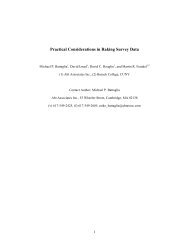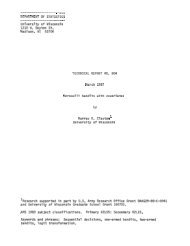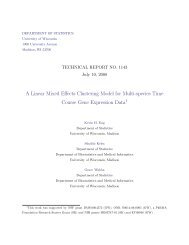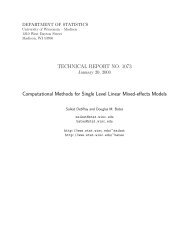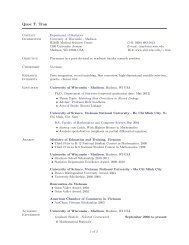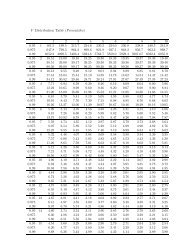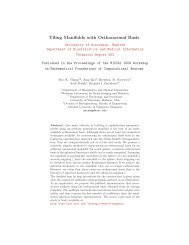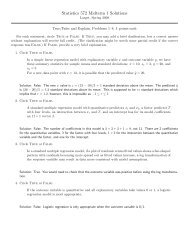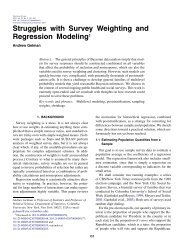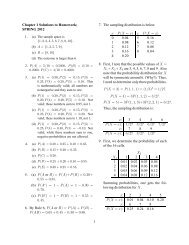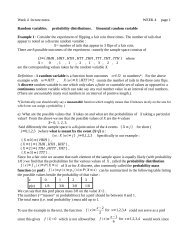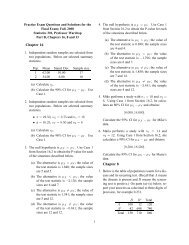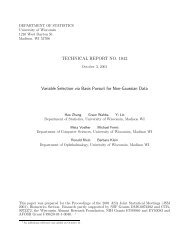On the Analysis of Optical Mapping Data - University of Wisconsin ...
On the Analysis of Optical Mapping Data - University of Wisconsin ...
On the Analysis of Optical Mapping Data - University of Wisconsin ...
You also want an ePaper? Increase the reach of your titles
YUMPU automatically turns print PDFs into web optimized ePapers that Google loves.
59<br />
Test statistics: Variability due to permutations<br />
0 10 20<br />
Null / Direct<br />
Observed / Direct<br />
Counts<br />
3546<br />
20<br />
3124<br />
2728<br />
10<br />
2359<br />
2017<br />
Second set <strong>of</strong> permutations<br />
20<br />
Null / Regression<br />
Observed / Regression<br />
0<br />
1702<br />
1413<br />
1151<br />
917<br />
708<br />
527<br />
372<br />
10<br />
245<br />
143<br />
0<br />
69<br />
22<br />
1<br />
0 10 20<br />
First set <strong>of</strong> permutations<br />
Figure 3.12 Variability in test statistics due to permutations. Two separate sets <strong>of</strong> permutations<br />
are used to derive <strong>the</strong> test statistics T 1 (M) and T 2 (M). The left panel represents<br />
realizations <strong>of</strong> T 1 and T 2 from <strong>the</strong> null distribution, and <strong>the</strong> right panel shows <strong>the</strong>ir observed<br />
values. Ideally, <strong>the</strong> observed values should not depend on <strong>the</strong> permutations used. Not surprisingly,<br />
this holds for <strong>the</strong> regression approach but not <strong>the</strong> direct approach. However, even<br />
with only 4 permutations to estimate µ (M), <strong>the</strong> variability in <strong>the</strong> latter is mild compared<br />
to <strong>the</strong> variability inherent in <strong>the</strong> null distribution. The panels corresponding to <strong>the</strong> null<br />
distributions indicate that unlike T 1 , T 2 retains some map-specific component.



